Consciousness in Indian Philosophy
This book focuses on the analysis of pure consciousness as found in Advaita Vedanta, one of the main schools of Indian philosophy. According to this tradition, reality is identified as Brahman, the world is considered illusory, and the individual self is identified with the absolute reality. Advaitins have various approaches to defend this argument, the central one being the doctrine of awareness only (cinmatra). Following this stream of argument, what consciousness grasps immediately is consciousness itself, and the notions of subject and object arise due to ignorance. This doctrine categorically rejects the plurality of individual selves and the reality of objects of perception.
Timalsina analyzes the nature of consciousness as understood in Advaita. He first explores the nature of reality and pure consciousness, and then moves on to analyze ignorance as propounded in Advaita. He then presents Advaita arguments against the definitions of object of cognition found in various other schools of Indian philosophy. In this process, the positions of two rival philosophical schools of Advaita and Madhva Vedanta are explored in order to examine the exchange between these two schools. The final section of the book contrasts the Yogacara and Advaita understandings of consciousness. Written lucidly and clearly, this book reveals the depth and implications of Indian metaphysics and argument. It will be of interest to scholars of Indian philosophy and Religious Studies.
Sthaneshwar Timalsina is Assistant Professor in the Department of Religious Studies, San Diego State University, US. His research interests include Tantric traditions, literary theory, and ritual studies. His first book, Seeing and Appearance, was published in 2006 by Shaker Verlag.
ROUTLEDGE HINDU STUDIES SERIES
Series Editor: Gavin Flood, University of Stirling
Former Series Editor: Francis X.Clooney, SJ, Harvard University
The Routledge Hindu Studies Series, in association with the Oxford Centre for Hindu Studies, intends the publication of constructive Hindu theological, philosophical and ethical projects aimed at bringing Hindu traditions into dialogue with contemporary trends in scholarship and contemporary society. The series invites original, high quality, research level work on religion, culture and society of Hindus living in India and abroad. Proposals for annotated translations of important primary sources and studies in the history of the Hindu religious traditions will also be considered.
- EPISTEMOLOGIES AND THE LIMITATIONS OF PHILOSOPHICAL INQUIRY
- Doctrine in Mdhva Vednta
- Deepak Sarma
- A HINDU CRITIQUE OF BUDDHIST EPISTEMOLOGY
- Kumarila on Perception
- The Determination of Perception Chapter of Kumarilabhattas
- Slokarvarttika
- Translation and Commentary
- John Taber
- SAMKARAS ADVAITA VEDANTA
- A Way of Teaching
- Jacqueline Hirst
- ATTENDING
 IMAGE
IMAGE - Caitanya
 Mrti-sev as Devotional Truth
Mrti-sev as Devotional Truth - Kenneth Russell Valpey
- ADVAITA VEDNTA AND

- The Philosophy of Madhusdana Sarasvat
- Sanjukta Gupta
- CLASSICAL
 AND YOGA
AND YOGA - An Indian Metaphysics of Experience
- Mikel Burley
- SELF-SURRENDER (PRAPATTI) TO GOD IN

- Tamil Cats and Sanskrit Monkeys
- Srilata Raman
- THE CAITANYA
 VEDNTA OF JVA GOSVM
VEDNTA OF JVA GOSVM - When Knowledge Meets Devotion
- Ravi M.Gupta
- GENDER AND NARRATIVE IN THE MAHBHRATA
- Edited by Simon Brodbeck and Brian Black
- YOGA IN THE MODERN WORLD
- Contemporary Perspectives
- Edited By Mark Singleton and Jean Byrne
- CONSCIOUSNESS IN INDIAN PHILOSOPHY
- The Advaita doctrine of awareness only
- Sthaneshwar Timalsina
Consciousness in Indian Philosophy
The Advaita doctrine of awareness only
Sthaneshwar Timalsina
First published 2009 by Routledge
2 Park Square, Milton Park, Abingdon, Oxon OX14 4RN
Simultaneously published in the USA and Canada
by Routledge
270 Madison Ave, New York, NY 10016
This edition published in the Taylor & Francis e-Library, 2008.
To purchase your own copy of this or any of Taylor & Francis or Routledges collection of thousands of eBooks please go to www.eBookstore.tandf.co.uk.
Routledge is an imprint of the Taylor & Francis Group, an informa business
2009 Sthaneshwar Timalsina
All rights reserved. No part of this book may be reprinted or reproduced or utilised in any form or by any electronic, mechanical, or other means, now known or hereafter invented, including photocopying and recording, or in any information storage or retrieval system, without permission in writing from the publishers.
British Library Cataloguing in Publication Data
A catalogue record for this book is available from the British Library
Library of Congress Cataloging in Publication Data
Timalsina, Sthaneshwar, 1965
Consciousness in Indian philosophy : the advaita doctrine of awareness only / Sthaneshwar Timalsina.
p. cm.
Includes bibliographical references and index.
1. Advaita. 2. Consciousness. I. Title.
B132.A3T56 2008
181.482dc22
2008018729
ISBN 0-203-88917-7 Master e-book ISBN
ISBN10: 0-415-77677-5 (hbk)
ISBN10: 0-203-88917-7 (ebk)
ISBN13: 978-0-415-77677-6 (hbk)
ISBN13: 978-0203-88917-6 (ebk)
Preface
The Routledge Hindu Studies Series, published in collaboration with the Oxford Centre for Hindu Studies, intends primarily the publication of constructive Hindu theological, philosophical, and ethical projects. The focus is on issues and concerns of relevance to readers interested in Hindu traditions in particular, yet also in the context of a wider range of related religious concerns that matter in todays world. The Series seeks to promote excellent scholarship and, in relation to it, an open and critical conversation among scholars and the wider audience of interested readers. Though contemporary in its purpose, the Series recognizes the importance of retrieving the classic texts and ideas, beliefs and practices, of Hindu traditions, so that the great intellectuals of these traditions may as it were become conversation partners in the conversations of today.
Philosophical idealism, in a weak version that there can be no account of the world independent of human consciousness and in a strong version that the world is identical with consciousness, has been a strong feature of Indian philosophy. In this book Sthaneshwar Timalsina develops an account of awareness only in the Advaita tradition. He describes the two views entailed by the idea, firstly that the essence of everything is pure consciousness and secondly that the myriad appearances of the world are identical with consciousness. On the one hand we have a pure non-dualism on the other we have an emanationist view that the world is a manifestation of consciousness. The author traces how the first view predominates in ankaras philosophy while later texts exemplify the world as a manifestation of consciousness. The book deals with these issues both in terms of philosophical argument and as the history of ideas which grounds these arguments in particular texts and traditions.

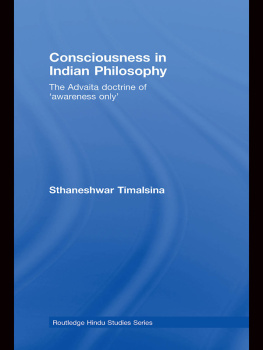
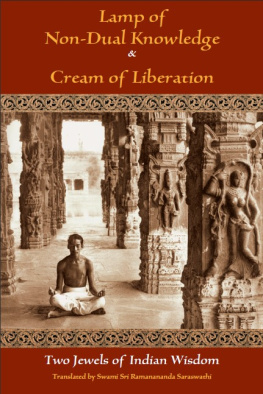
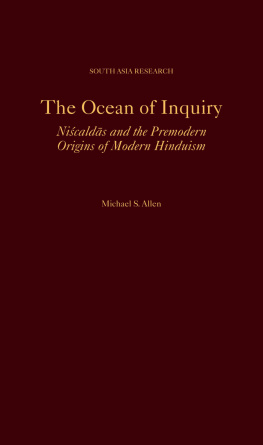
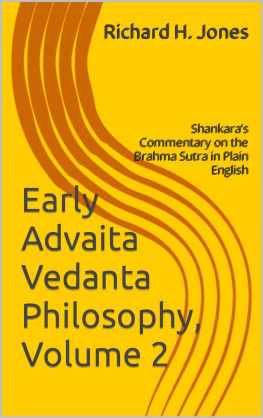
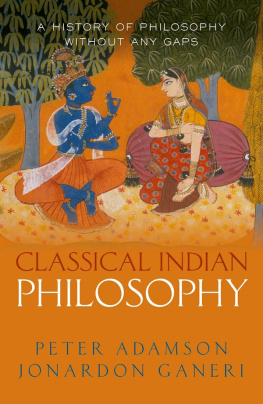
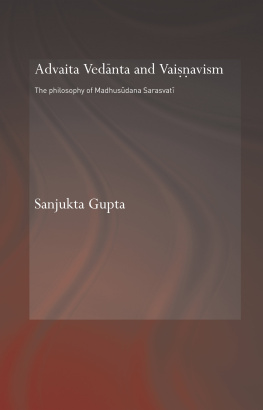
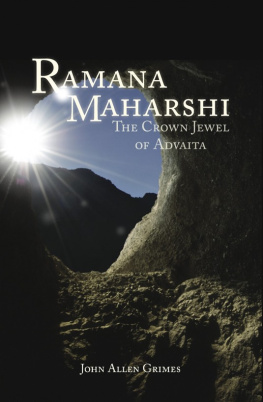
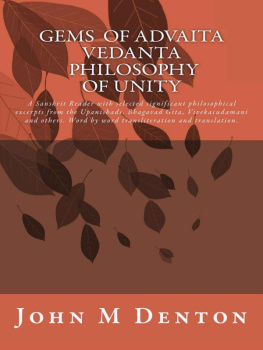

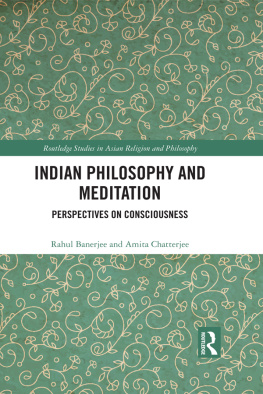
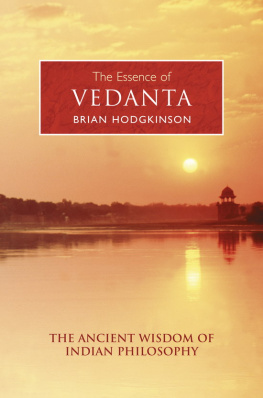
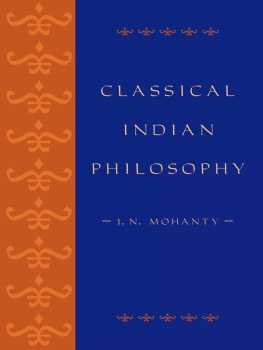
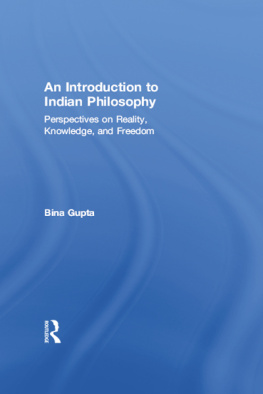
 IMAGE
IMAGE Mrti-sev as Devotional Truth
Mrti-sev as Devotional Truth
 AND YOGA
AND YOGA
 VEDNTA OF JVA GOSVM
VEDNTA OF JVA GOSVM